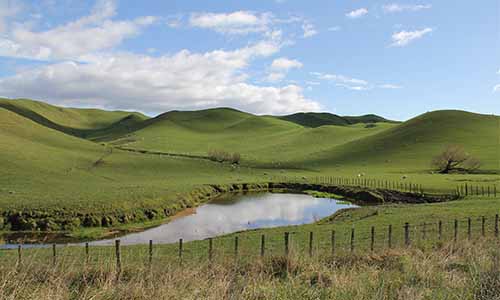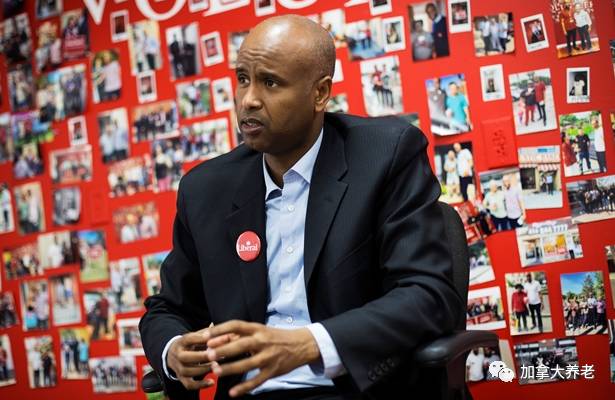Instructions On Changes In Canada's Immigration Policy In 2024, Such As Student Visa Application Restrictions
Instructions On Changes In Canada's Immigration Policy In 2024, Such As Student Visa Application Restrictions
Changes in the work visa policy for graduates of public-private joint institutions: From May 15, 2024, international students from public-private joint institutions will no longer be eligible to apply for a post-graduate work permit (PGWP). At the same time, starting from March 1, 2024
Canada, as a long and popular immigrant country, has always been one of the destinations for global immigrants to come, attracting many immigrants from all over the world every year. The open and inclusive immigration policy implemented by the country has played a crucial supporting role in the prosperity and development of the country's economy and society. However, since the immigration minister Mark Miller proposed the immigration policy reform plan in 2023, by 2024, Canada's immigration policy has undergone major changes and has begun to gradually implement a series of reforms and tightening measures.

In 2024, Canada's immigration policy has undergone adjustments and changes in various fields, from federal level to provincial governments, from student visas to work visas. The following are some more significant adjustment points for your reference and summary:
1. Adjustment of policy for international students
In 2024, Canada implemented a total control of the number of student visa applications, with a limit of 360,000, a 35% reduction from 2023. It is predicted that the number of applicants who are college and undergraduate students will have a student visa that year, while the number of applicants approved is expected to be 291,914, a 28% decrease from 2023. It is worth noting that this restriction does not apply to international students in primary and secondary schools and master's and doctoral studies.
Relevant supporting documents must be submitted when applying for a study visa: Starting from January 22, 2024, most international freshmen with undergraduate or above must present a provincial certificate letter (PAL) issued by provincial government departments during the process of applying for a study visa.
The new regulations implemented on May 15, 2024 stipulate that international students trained by public-private joint institutions will be disqualified from applying for a post-graduate work permit (PGWP).
Implementation from February 15, 2024, for master's degree recipients who have a degree of less than two years (i.e. at least eight months) will be eligible to apply for a post-graduate work visa that can be up to three years.
The newly revised spouse work visa policy implemented on March 19, 2024 stipulates that if an international student partner wants to apply for a spouse open work visa, he must meet one of the following conditions: the guarantor must study in a full-time graduate program at the university or a college degree program, or during the period of studying university professional degree programs; and for partners of college and undergraduate students, this policy will no longer apply.
Freshmen who enroll from September 1, 2024 should be noted that they must complete at least half of their studies in Canada; at the same time, their duration of study abroad will be deducted accordingly from the validity period of the Post-Graduation Work Permit (PGWP).
2 Adjustment of immigration projects in each province
Starting implementation on March 19, 2024, BC announced that it will abolish the current master-doctoral immigration pathways from 2025 and plans to launch three new ways of studying abroad immigration. According to the new regulations, if undergraduate and master's students want to apply for immigration, they must obtain the employer's guarantee and their language level must meet the CLB8 standard; doctoral students can directly apply for immigration without the employer's guarantee.
The Opportunity Category (AOS) channel in Alberta is now suspended, and it will be on February 15, 2024. Alberta AAIP has officially announced this decision. Nevertheless, previously submitted applications will be reviewed as usual, however, new applications and applications to be paid will no longer be accepted. Starting from March 1, 2024, Alberta has set up a new immigration route for tourism and hotel industries. This channel is mainly for foreign workers who have been working in Alberta for more than six months in related full-time work. The provision requires that such jobs must be non-seasonal and that the employer must provide corresponding certification.
The Alberta nomination plan will be updated: starting from 2024, the province will launch a new nomination application mechanism, and set a fixed day every month to accept certain limits of applications. Once the quota reaches the upper limit, the application channel for the month will be automatically closed. Applicants must submit their materials within the specified date range, and if they miss this period, they must be patient and wait for the next round of opening.
Saskatchewan Province urgently suspends scarce skills training projects: Starting from January 11, 2024, the province has suspended the implementation of scarce vocational skills pilot projects, but applications for medical and agricultural-related professions will not be affected by this, and applicants can still submit materials normally.
The immigration policy of entrepreneurs in Saskatchewan has been adjusted: Since March 14, 2024, Saskatchewan has revised its immigration policy for entrepreneurs. The new regulations have introduced new conditions such as language ability tests and interviews, and have formulated specific regulations in many aspects such as language level (CLB5), business inspections, enterprise operation management, industry restrictions, and residence qualifications. The new regulations will take effect from the date of implementation, and applicants who have been selected will continue to follow the original policies.
Prince Edward Island adjusts immigration quotas: On February 22, 2024, the province announced a policy that it decided to reduce immigration quotas by 25%, while the remaining 75% of the quotas will be redistributed, with the aim of prioritizing the need for talents in the fields of health care and early education in the province.
The Yukon government issued a notice on May 16, 2024, announcing that the application for the Yukon Baima City nomination project will be temporarily suspended and the decision will take effect on the same day.
3 Federal immigration program adjustments
Starting from March 6, 2024, Canada has officially launched two new immigration pilot programs, namely the immigration pilot program for rural communities (RCIP) and the immigration pilot program for French-speaking communities (FCIP). Meanwhile, the Canadian immigration department has also announced that it will upgrade the original Rural and Northern Immigration Pilot Project (RNIP) to a long-term immigration policy.
On June 3, 2024, the federal immigration department officially announced that it will launch two new pilot programs. The core purpose of the program is to assist care workers from overseas to quickly qualify as permanent residents after arriving in Canada. The reform aims to improve the original family child caregivers and family support workers program, relax language standards (from CLB5 to level 4), and lower the requirements for educational background (from at least one year of junior college education to Canadian high school graduation level). At the same time, the threshold for work experience has also been adjusted accordingly (from working in Canada for two years to having recent relevant work experience).
Canada has decided to fully suspend the collection of self-employed immigration applications starting from April 30, 2024. This move aims to concentrate on dealing with the existing backlog of applications and carry out necessary reforms to the projects, so as to ensure the thoroughness and perfection of the application process.
Entrepreneurship Visa (SUV) programs need to be strengthened: The Immigration, Refugees and Citizenship Canada (IRCC) has updated the SUV program, which stipulates that only permanent residents of 10 startups recommended by each designated venture capital agency, angel investor team and business incubator will be accepted each year. At the same time, immigration applications submitted by entrepreneurs funded by Canadian Capital or 's Tech members will be given priority.
The Foreign Temporary Workers Project (TFWP) is about to usher in three major adjustments: Starting from September 26, 2024, the plan will adopt the following changes:
1. No longer accept LMIA applications in low-paying categories;
2. The number of employees in the low-paying category shall not exceed 10% of the total number of employees;
3. The maximum working period for the low-wage category LMIA is shortened from 2 years to 1 year.

In the past year, Canada's immigration policy has undergone significant changes. Many highly-watched immigration programs have either improved the application conditions or temporarily stopped enrollment. Faced with such a situation, those friends who plan to immigrate to Canada must make immigration plans in advance, seize the time to lock in high-quality projects, and take decisive actions.
United Immigration Company focuses on providing you with comprehensive immigration solutions, aiming to assist you in selecting the best quality projects that meet your needs among the complex immigration policies.
We are equipped with a senior immigration consulting team. With their profound insight into the policy level and careful market research, we are able to carefully create the most appropriate immigration plan for every client.
When you apply for popular immigration programs or face policy changes, we can provide precise consultation and high-quality services to help you achieve your immigration wishes quickly and safely.





